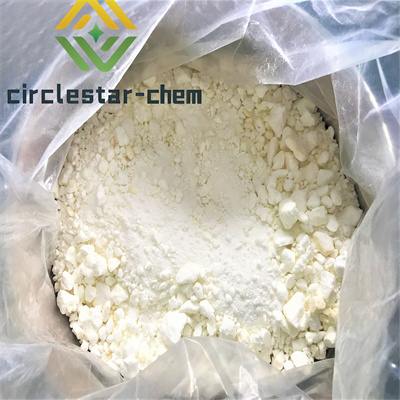
CAS: 166663-25-8 Anidulafungin
Product Name: Anidulafungin
Synonyms: Anidulafungin;Echinocandin B, 1-(4R,5R)-4,5-dihydroxy-N2-4-(pentyloxy)1,1:4,1-terphenyl-4-ylcarbonyl-L-ornithine-;Anidulafungin(LY303366);Ecalta;Eraxis;LY 303366;LY 303366, Eraxis;1-[(4R,5R)-4,5-dihydroxy-N2-[[4''-(pentyloxy)[1,1'',1''-terphenyl]-4-yl]carbonyl]-L-ornithine]-echinocandin B
CAS: 166663-25-8
MF: C58H73N7O17
MW: 1140.24
EINECS: 658-060-4
Product Categories: Inhibitors;Antifungals;API
Price on request
REQUEST NOWProduct Introduction:
Description Anidulafungin, a semi-synthetic derivative of echinocandin B, has been developed and launched as an intravenous treatment for serious fungal infections, such as candidemia, Candida-derived peritonitis, intra-abdominal abscesses, and esophageal candidiasis. As a non-competitive inhibitor of 1,3-b-D-glucan synthase, which is responsible for the formation of glucan polymers, anidulafungin interferes with the cell wall synthesis of most pathogenic fungi. This mode of action is characteristic of the echinocandin class of antifungals. While the first member of this class, cilofungin, was withdrawn due to toxicity associated with the formulation vehicle, anidulafungin follows the successful introduction of caspofungin and micafungin. Compared to the other echinocandins, anidulafungin appears to be more potent (MIC90 ofr0.25 mg/mL for C.albicans, 0.5 mg/mL for C.glabrata, 1 mg/mL for C. krusel and C.tropicalis, 2mg/mL for C.lusitaniae, and 2 mg/mL for Aspergillus spp) and is devoid of significant drug interactions since it is neither an inhibitor nor substrate of the cytochrome P450 isoenzymes. The emergence of the echinocandins circumvents the concern regarding the rising resistance to the azole and amphotericin B antifungals; no cross-resistance is expected because the echinocandins work at the cell wall rather than the cell membrane.
Uses Anidulafungin is a semi-synthetic cyclic lipopeptide belonging to the echinocandin class that was reported in 1995 and commercially developed by Eli Lilly. Anidulafungin inhibits the synthesis of β-(1,3)-D-glucan, an essential component of the cell wall of susceptible fungi and is extensively referenced in the literature with over 400 citations.
Uses nucleoside reverse transcriptase inhibitor (NRTI) for HIV treatment in adults"
Related products